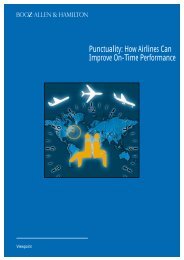The sentence
The sentence
The sentence
Create successful ePaper yourself
Turn your PDF publications into a flip-book with our unique Google optimized e-Paper software.
2. We often use do and did + use (Not *used*) to form questions and negatives:<br />
Did you use to smoke? I didn’t use to smoke. (Not *Did you used to* *I didn’t used to*)<br />
We also use never to form the negative: I never used to smoke. (Used not to is rare.)<br />
3. Note the use of did: He used to live in Manchester, didn’t he? (rather than usedn’t he?)<br />
Did you use to live here? – Yes, I did./No, I didn’t. He used to live here and so did I.<br />
Uses of ‘used to’<br />
1. We use the simple past or used to to refer to past habit.<br />
We need a time reference with the simple past, but not with used to:<br />
I collected stamps when I was a child. I used to collect stamps (when I was a child).<br />
(Not *I was collecting stamps when I was a child*)<br />
2. We use used to to make a contrast between past and present with expressions like:<br />
but now …, but not any more, but not any longer:<br />
I used to eat a large breakfast, but I don’t any longer.<br />
3. Used to can also refer to past states:<br />
She used to be very punctual (but she isn’t any more).<br />
‘Would’ in place of ‘used to’ and in place of the simple past<br />
When we are ‘remembering the past’, we sometimes use would in place of used to.<br />
First we set the scene with used to, then we continue with would:<br />
When I was a boy we always spent/used to spend our holidays on a farm. We would get up at<br />
5 and we’d help milk the cows. <strong>The</strong>n we’d return to the kitchen for breakfast.<br />
‘Will/would’ to describe ‘usual behaviour’<br />
We sometimes use will in place of the simple present and would in place of the simple past<br />
to refer to a person’s ‘usual behaviour’:<br />
In fine weather he will often sit in the sun for hours. (= he often sits)<br />
As he grew old, he would often talk about his war experiences. (= he often talked)<br />
L. ‘Need’ and ‘dare’ as modals and as full verbs<br />
‘Need’ as a modal and as a full verb<br />
1. We use need as a modal (without to after it) mainly in the negative to mean ‘it isn’t<br />
necessary’: I needn’t go to the meeting today. I needn’t have gone to the meeting<br />
yesterday.<br />
2. In the affirmative, we use need as a modal:<br />
- in questions: Need you go so soon? Need you have told him the truth?<br />
- with ‘negative adverbs’ (e.g. hardly): I need hardly tell you how important this is.<br />
3. Otherwise, we generally use the full verb need to (used like any regular verb):<br />
I need to/I don’t need to/I needed to/ I didn’t need to go to the dentist this<br />
morning.<br />
76




